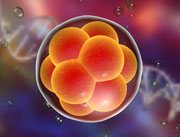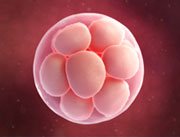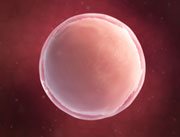FIVET + ICSI

In vitro fertilization in the lab by intracytoplasmic sperm injection to subsequently transfer the embryo/s obtained into patient's own uterus expecting it will implant and give rise to a pregnancy.
How it works
We make it easy for you!
- We finance your treatment to make you easier to pay it in terms
- We collaborate with the main health insurance companies (coverage according to policy)
- We explain in detail what it is included in each treatment to avoid surprises.
Tipo de paciente
Women between 18-52 years of age in good physical an mental condition
Price at IMF Easyfiv 3.060€ %price%€ *
IMF Easyfiv - IMF collaborating center authorised with register number: CS-0001Cómo funciona
After a period of ovarian stimulation and through follicular aspiration, the oocytes are retrieved from the womans ovaries. This process is carried out under ultrasound monitoring by the gynecologist who determines the best time, just before ovulation.
In a coordinated manner the man will be asked to provide a sperm sample by masturbating into a specimen cup usually on the same day the treatment takes place. The sperm sample is processed in order to increase the vigor of the spermatozoa through centrigugation and a technique named swim-up.
If possible, motile and optimal shape spermatozoa is selected one by one, eventhough ICSI can be performed with any available spermatozoon from surgery or ejaculated samples, whatever are the sperm motility, morphology or quantity. Afterwards it´s directly injected into each egg after immobilization through microinjection (ICSI). Intracytoplasmic sperm injection (ICSI) is carried out in the laboratory and subsequent incubation and monitoring is performed to check that the egg has been fertilized correctly, producing developing embryos.
One or more embryos are transferred to woman´s uterus through an ambulatory painless procedure that does not require sedation, after which rest is recommended.The gynecologist introduces the embryo using a soft catheter under ultrasound guidance.
From 10-12 days after the embryo transfer, the blood test can be performed to identify the presence of the Beta-CGH subunit, confirming the diagnosis of pregnancy.
If there are oocytes that have been retrieved but not been used for the process, they can be preserved using vitrification if required. Vitrification procedure allows oocyte preservation and long term storage.
If there are surplus embryos they can be cryopreserved or donated, under a strict legal protocol that all clinics are required to obey. Embryo cryopreservation is performed by vitrification.
Qué incluye el precio
- First briefing visit
- Individualised diagnosis and treatment
- Cycle programme
- Every monitoring ultrasound required during ovarian stimulation
- Follicular puncture performed in the theatre under sedation to carry out egg retrieval.
- Examination and processing of sperm sample
- In vitro fertilization in the lab through intracytoplasmic sperm injection
- Incubation and embryo culture for a period of 2 or 3 days
- Embryo fresh transfer to woman´s uterus
- Gynecological consultation to confirm pregnancy
Madrid Fertility clinic C. de Joaquín María López, 44, 28015 Madrid
Barcelona Fertility clinic C/ Horaci, 9, bajos. 08022 Barcelona







